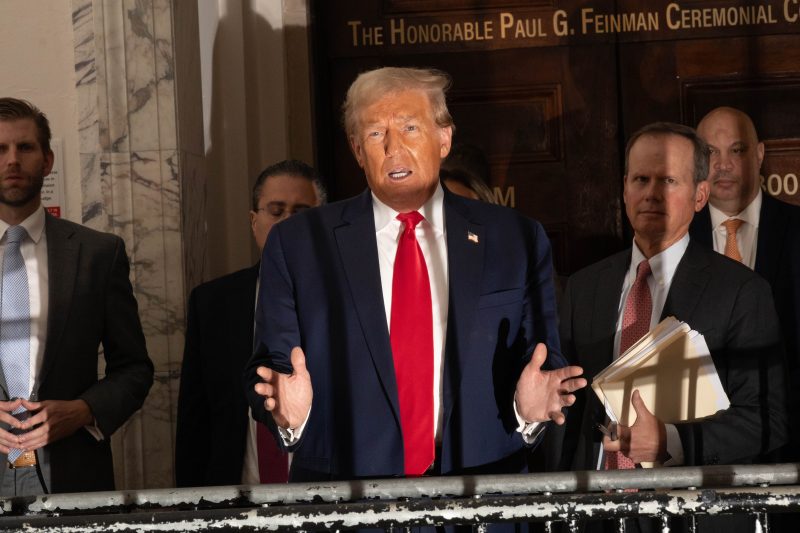Not one single vote has been cast for the Republican Party’s 2024 nominating contest yet, but it’s hard to see how the fight isn’t already over.
Former president Donald Trump holds a huge national polling lead over his opponents, a lead that has little precedent in the last 40-plus years of contested Republican primaries. Perhaps more importantly, though, it’s hard to imagine a scenario in which perhaps the best-known nonincumbent candidate for his party’s nomination sees a sudden erosion in support large enough to cost him his lead.
This question of Trump’s lead and its durability was raised by an excellent report from my Washington Post colleagues this weekend, considering how Florida Gov. Ron DeSantis’s (R) once-enviable position as the alternative to Trump had collapsed so dramatically that he is now trying to fend off Nikki Haley, the former U.S. ambassador to the United Nations, for second place in national polling. It is no longer the case that Trump and DeSantis are separated from the pack; instead, an exhausted DeSantis has simply been folded into the chase group.
Put another way, Haley is not challenging Trump for the nomination, but, instead, challenging DeSantis for the biggest participation trophy.
ABC News’s 538 polling analysis site has historic averages of national primary polling that we can compare to Trump’s current position. Older Republican nominating contests had spottier polling, meaning that the averages aren’t as extensive or volatile. But the comparison is nonetheless instructive.
If we use the Iowa caucuses in each contested Republican nominating fight since 1980 as our point of reference, we see that Trump’s current national lead was exceeded only once: by George W. Bush in the 2000 primaries. Bush, as you might be aware, went on to easily win his party’s nomination. The next biggest lead in the average was held by Bob Dole in 1996. He also won the nomination.
Both Dole and Bush also won the Iowa caucuses, which no other eventual Republican nominee has done in a contested primary campaign since 1980. Even Trump lost in Iowa in 2016, barely; he quickly pivoted to accusing the winner, Sen. Ted Cruz (R-Tex.), of cheating.
This is important because DeSantis’s strategy for winning the election appears to center on victory in Iowa. He shifted campaign staff there earlier this month, with various reports suggesting it will serve as his make-or-break point. His Alamo, perhaps.
Should DeSantis eke out a win in the Hawkeye State — though Trump currently leads there by 30 points in 538’s average — then what? Are Republicans suddenly going to think that he’s a better bet for November and flip their support? It’s certainly possible but DeSantis has been making exactly that argument for months without 1) polling backing up his arguments or 2) gaining any ground against the former president.
It’s useful to remember that Trump’s been here before. In 2016, he held the lead in Republican primary polling and went on to lose Iowa before securing the nomination. But his lead that year was never as robust as his lead is this time around. Back then, it was feasible to imagine that something could emerge that derailed his candidacy; in fact, such potential derailments were identified repeatedly, without actually derailing him. Now he’s so well-known by voters that the idea he might stumble seems much less likely.
It’s also useful to remember that the perennial “what if all but one Trump alternative drops out” strategy ignores 1) that Trump’s over 50 percent in national polling and 2) he’s still the second choice for a lot of people who prefer his opponents.
Again, no votes have yet been cast! But those arguing that Trump might not win would seem to have a fairly robust burden of proof to overcome. Sure, theoretically he could lose, just as, theoretically, the moon could spontaneously turn purple. If you’re arguing that the moon will do that, I’d be interested to hear how!
Likewise for the idea that Trump won’t be the GOP’s 2024 nominee.

